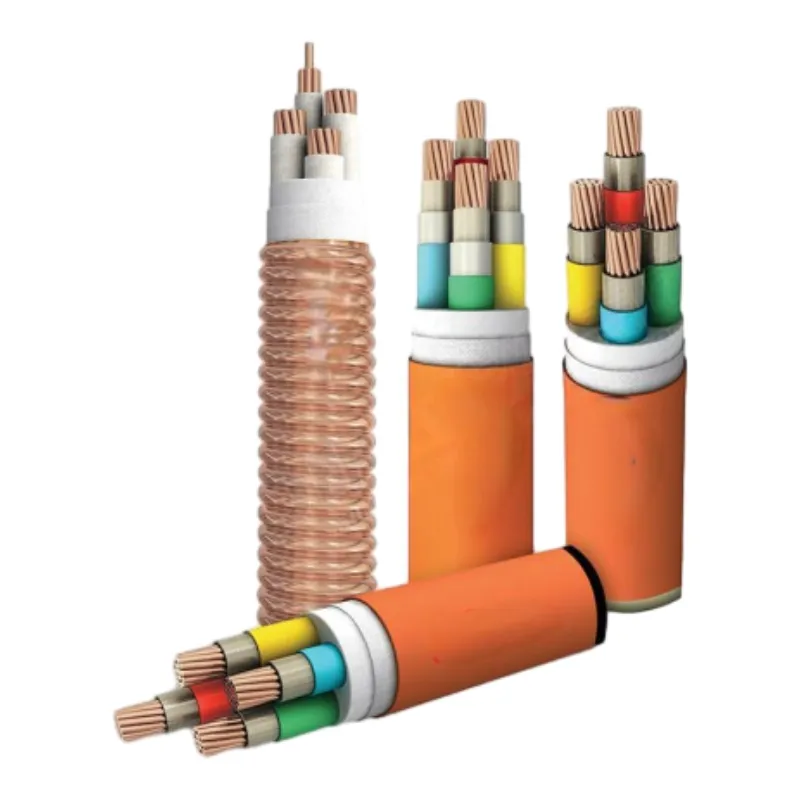Dec . 12, 2024 09:39 Back to list
gate valve actuator
Gate Valve Actuator A Key Component in Fluid Control Systems
In the world of fluid power and control systems, gate valves play an essential role in regulating the flow of liquids and gases in various industrial applications. However, the effectiveness of a gate valve heavily depends on its actuator, which serves as the driving mechanism behind its operation. This article will explore the significance of gate valve actuators, their types, applications, and considerations for selecting the right actuator.
Understanding Gate Valves
Gate valves are used primarily to start or stop the flow of a medium. They are designed for minimal pressure drop when opened fully, making them ideal for applications where flow needs to be maximized. When closed, a gate valve creates a tight seal, preventing leakage. The valve's design features two parallel disks, or gates, that move vertically in the valve body to control the flow. However, the manual operation of gate valves can be labor-intensive and time-consuming, particularly in large systems, which is where actuators come into play.
Role of the Actuator
An actuator is a device that enables the automatic operation of a valve. For gate valves, actuators simplify the opening and closing processes by converting energy from various sources into mechanical motion. This automation not only enhances operational efficiency but also allows for remote control and monitoring of the system, which is crucial in complex industrial setups.
Types of Gate Valve Actuators
Gate valve actuators can be classified into several categories based on their power sources and operating principles
1. Electric Actuators These actuators utilize electric power to operate the valve. They are ideal for applications where precise control and monitoring are essential, and they can be easily integrated into automated systems. Electric actuators can also offer features like torque feedback and position indicators, contributing to improved performance.
2. Pneumatic Actuators These actuators use compressed air to create mechanical movement. Pneumatic actuators are known for their fast operation and responsiveness. They are suitable for environments that require rapid opening and closing of the valve. However, the availability of compressed air and the need for additional components such as air supply lines are important considerations.
gate valve actuator

3. Hydraulic Actuators Utilizing hydraulic fluid to operate, these actuators provide high force and are ideal for heavy-duty applications. They are used in situations where larger valves need to be operated or where significant torque is required. Despite their advantages, hydraulic systems can be complex, requiring careful maintenance to prevent leaks and ensure reliability.
4. Manual Actuators Although not automated, manual actuators, such as handwheels or levers, are still prevalent in smaller systems or emergency situations. They provide a simple means of operation, but they lack the efficiency and convenience of powered systems.
Applications in Various Industries
Gate valve actuators find applications across a wide range of industries, including
- Oil and Gas Ensuring safe and efficient flow control in pipelines and refineries. - Water Treatment Regulating water flow in treatment plants and distribution systems. - Chemical Processing Handling hazardous materials where precise flow control is critical. - Power Generation Managing the flow of steam, water, and other fluids in power plants.
Selecting the Right Actuator
When choosing a gate valve actuator, several factors must be considered
1. Medium Type The characteristics of the fluid, including viscosity, temperature, and potential corrosiveness, influence actuator selection. 2. Operating Environment Factors such as temperature, humidity, and potential exposure to chemicals or debris can affect actuator performance. 3. Control Requirements Depending on the complexity of the system, automation needs, and control precision may dictate whether electric, pneumatic, or hydraulic actuators are necessary. 4. Size and Torque Requirements Understanding the torque needed to operate the specific valve is crucial for selecting an actuator that can handle the demands of the application.
Conclusion
In summary, gate valve actuators are integral to the efficient and effective management of fluid control systems across a variety of industries. By understanding the different types of actuators and their specific applications, engineers and operators can select the most suitable actuator for their needs, ultimately enhancing the performance and reliability of their systems. As technology continues to advance, the role of actuators in automation and control will only become more significant, driving innovation in the field of fluid dynamics.
Share
-
Reliable Wafer Type Butterfly Valves for Every IndustryNewsJul.25,2025
-
Reliable Flow Control Begins with the Right Ball Check ValveNewsJul.25,2025
-
Precision Flow Control Starts with Quality ValvesNewsJul.25,2025
-
Industrial Flow Control ReliabilityNewsJul.25,2025
-
Engineered for Efficiency Gate Valves That Power Industrial PerformanceNewsJul.25,2025
-
Empowering Infrastructure Through Quality ManufacturingNewsJul.25,2025